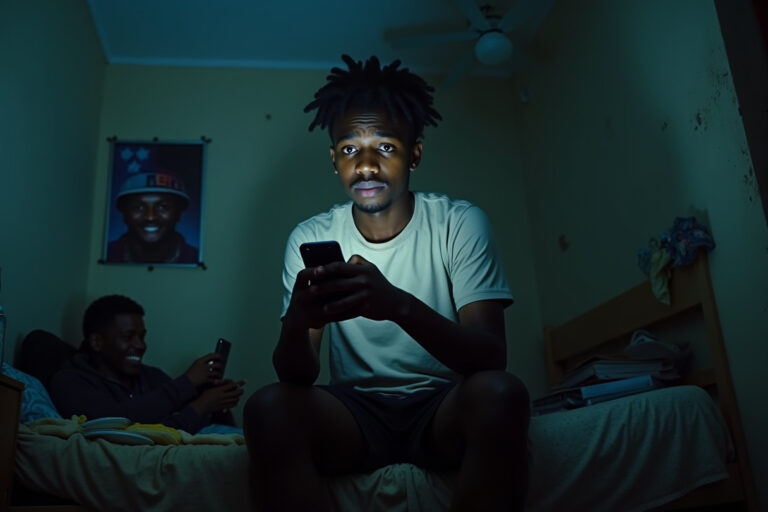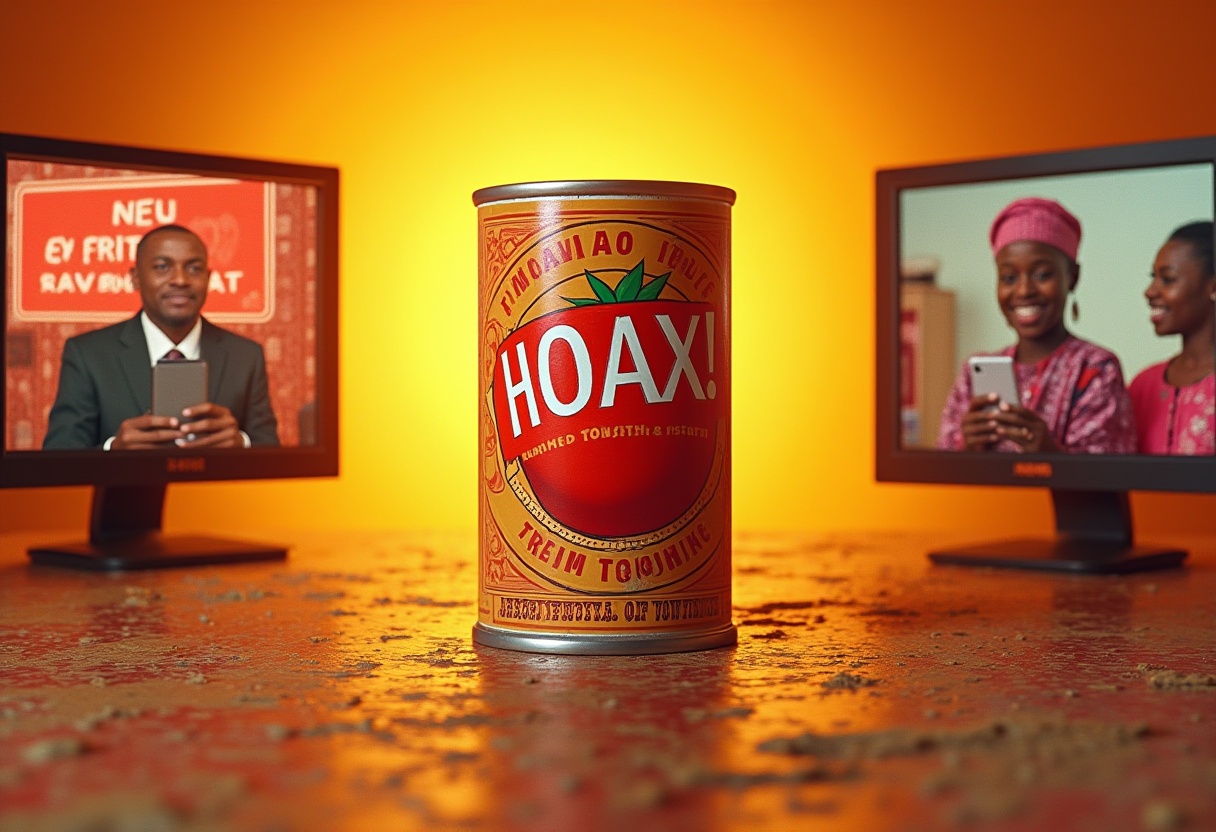“Ayo! Wake up, guy. Dem don pay!”
Ayo squinted at his buzzing phone, his eyes adjusting to the harsh glow of the screen. The room still smelled of last night’s beans and early morning sleep: heavy, warm, and faintly suspicious.
“Wetin dem pay?” he mumbled, rolling over.
Kunle was already pacing the room in boxers and joy. “Twitter dey hot. Federal government say make dem compensate students. ₦50k each. Na for all the ASUU strike wahala.”
Ayo sat up, suddenly alert. “₦50k ke? You serious?”
Kunle thrust his phone in front of him. “See am. ‘FG announces ₦50,000 alert for all federal uni students. Click link to claim. ID and bank details needed. Limited slots.'”
The link sparkled like destiny.
Ayo didn’t even brush his teeth. He grabbed his phone and clicked.
The next five minutes were a blur of typing: student ID, bank name, account number, even his OTP. He could already picture himself buying suya, topping up his data, and finally fixing that cracked phone screen.
But instead of a credit alert, his phone glitched. His banking app refused to open. And just like that, his MTN line went dead.
“Ah!” he shouted. “Kunle, e be like say dem don chop me raw.”
Kunle raised an eyebrow, now calmly back on his bed. “Wait first. You enter the link? You give them your OTP?”
Ayo blinked. “Dem say na verification.”
Kunle snorted. “Verification of your mumu.”
Later that day…
The class was unusually quiet. Dr. Salami, their media literacy lecturer, dropped his marker dramatically and turned to the board.
“Let’s talk about fake news. Since some of you like to learn through heartbreak.”
The class chuckled.
He tapped the whiteboard.
“Misinformation is when your aunty sends you a broadcast saying indomie causes cancer. She believes it, but it’s false. No harm intended.”
“Disinformation,” he paused, “is when someone creates false info on purpose. Like that tweet about the ₦50k alert. It was designed to scam students. That’s disinformation.”
“Then there’s malinformation, when you take something true, like someone’s HIV status or a leaked picture, and you post it just to shame or hurt them. That one na wickedness.”
Ayo sank into his seat, his face warm.
Dr. Salami didn’t miss it. “Some of you have donated your details to the gods of fraud this morning. Learn and repent.”
Moral of the story?
Fake news isn’t just about headlines or politics. It’s that tweet that steals your data. That voice note that causes panic in your community. That “urgent” message that sends you from vibe to village meeting.
And in Nigeria, where cruise dey mix with crisis, the wrong info can cause real damage.
So next time, before you click or forward, ask:
“Who talk am?”
“Where e come from?”
“Abi na clout?”
Because as Ayo now knows… not every alert is from CBN. Some na Yahoo FM.





